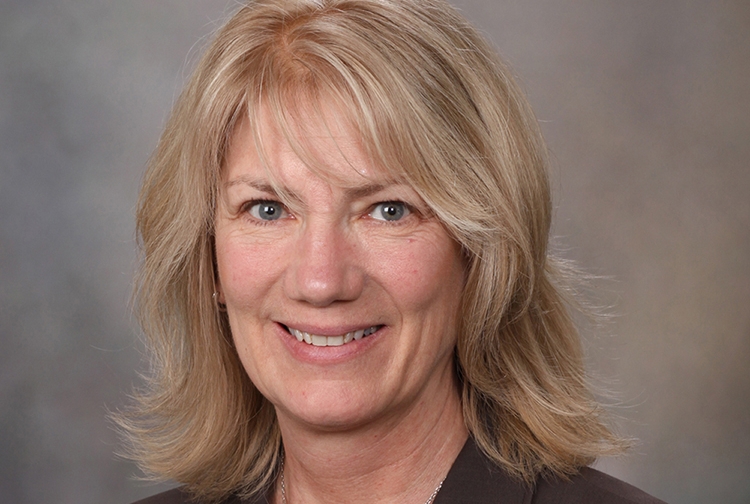Renowned biostatistician Dr. Karla Ballman has been named chief of the Division of Biostatics and Epidemiology in the Department of Healthcare Policy and Research at Weill Cornell Medical College, effective July 15.
Dr. Ballman specializes in designing clinical trials, analyzing complex data, and developing molecular signatures that can help predict whether or not a cancer patient will respond to targeted therapies. She most recently was a professor of biostatistics at the Mayo Clinic College of Medicine and a consultant in the Division of Biomedical Statistics and Informatics at the Mayo Clinic in Rochester, Minn. She is also a former chair of the Division of Biostatistics at Mayo.
In her new role, Dr. Ballman will recruit top-tier biostatisticians who will work closely with Weill Cornell's principal investigators to design translational, clinical and basic research studies, as well as clinical trials, that most effectively answer their central scientific questions. Once these research projects are in progress, biostatisticians will collect, examine and interpret the incoming data, providing key analysis for the scientists. Dr. Ballman will ensure that her team is aligned with investigators from the start of each project, and work to form new and strengthen existing collaborative partnerships within the institution.
"We are so pleased to have Dr. Ballman joining us. She is a talented biostatistician and effective leader," said Dr. Rainu Kaushal, chair of the Department of Healthcare Policy and Research and the Frances and John L. Loeb Professor of Medical Informatics at Weill Cornell, and healthcare policy and research physician-in-chief at NewYork-Presbyterian/Weill Cornell Medical Center. "In her new role, Dr. Ballman will serve as an integral part of our multidisciplinary department. She'll bring her expertise to bear on specific research projects as well as on recruitment of new biostatisticians, and we couldn't be happier to have her on board."
"Weill Cornell Medical College is an exciting place to be right now," Dr. Ballman said. "Research is growing rapidly — especially in cancer, clinical trials and precision medicine — areas in which I have a background and specialized interest. My goal is to make sure that every investigator is fully supported, and I'm excited to really grow the program to meet that objective."
Dr. Ballman, who is also an associate editor for the high-impact Journal of Clinical Oncology, has spent the last 16 years working in medical statistics, 13 of them in cancer biostatistics. She's received research grants from the National Cancer Institute and National Institutes of Health, and served as biostastics core director for a prostate Specialized Programs of Research Excellence (SPORE) grant and for a brain cancer SPORE.
Dr. Ballman has published more than 130 peer-reviewed articles in publications including Cancer, Lancet, the Journal of Clinical Oncology and Neuro-Oncology, and is a member of the American Society of Clinical Oncology, the Society for Clinical Trials and other professional groups. She serves on the National Cancer Institutes' Brain Malignancies Steering Committee and Gastrointestinal Stromal Tumors Working Group, and was a member of the institute's Breast Cancer Intergroup Committee and Breast Cancer Intergroup Correlative Sciences Committee. She also serves on the U.S. Food and Drug Administration's General and Plastic Surgery Devices Panel, and is a member of the Damon Runyon Investigator Award panel. Dr. Ballman holds two patents for gene signatures. The first predicts the risk for men with rising prostate-specific antigen levels of developing metastatic prostate cancer. The other predicts which women diagnosed with a form of breast cancer called HER2-positive breast cancer will benefit from the medicine trastuzumab (Herceptin).
To get where she is today, though, she said that she took a circuitous path.
"I've always been good at math, but I'm not a mathematician," she said. "I like using math to solve problems that need to be solved."
This interest in problem solving first led her to pursue a doctorate in operations research from the Massachusetts Institute of Technology, which she received in 1991. After a few years teaching at her undergraduate alma mater, Macalester College in St. Paul, Minn., she landed a job at the Mayo Clinic in 1999 — her first in a medical setting.
Research statisticians at the Mayo Clinic are assigned a few medical disciplines to focus on and become experts in so that they can actively assist in developing new studies and clinical trials.
"Statistics is more than just doing the numbers," Dr. Ballman said. "It's doing the numbers within a particular context while trying to solve a specific problem. In order to match the right statistics and the right design, you have to be able to really understand that discipline."
She credits this approach for enabling her to design a clinical trial that eventually led to a change in the way early-stage breast cancer patients are treated. The trial assessed whether a procedure called complete axillary lymph node dissection that removed all lymph nodes in the armpits and surrounding areas in women whose breast cancer had spread to just one node was medically necessary in early-stage patients. The procedure increases the risk that the arm becomes permanently swollen; this occurs in about 10 percent of women who undergo it, and the study found that removing the lymph nodes made no difference in patients' overall outcomes. Today, many women won't have the procedure done because of her work.
Dr. Ballman is dedicated to bringing this integrated and specialized approach to Weill Cornell. She will first recruit statisticians to what she considers to be the biggest need areas: cancer research and clinical trials. Both areas, she said, present interesting challenges for statisticians. For example, they may have to use a different blueprint for effective clinical trials that involve precision medicine approaches in cancer. Dr. Ballman's team will be empowered to enhance study design and how data is processed.
"Getting in at the ground floor and working in a field where you can possibly have an effect on someone's life is always exciting," she said.

